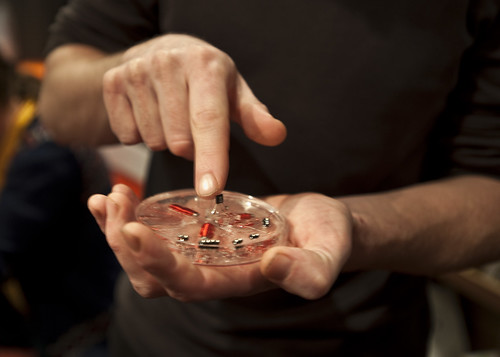[Martin Puryear’s] sculptures look the way they do because they need to in order to mean what they do. The labor that is compressed into them allows them to work over time, and the time it takes to make them is the time taken to mean it. That they so often employ specialized tradesmen’s skills in their making allows them to work at the edges of utility—vessels that might be dwellings in the shapes of bodies—and in that fertile seam between representation and abstraction.
A quote from “From Head to Hand: Art and the Manual” by David Levi Strauss.
Why do I blog this? I like the way that time is emphasized here rather than the outcome. The emphasis is on the practice and process, which have so much to say about the sculpture. This distinction comes up often while materializing ideas. So often we can throw away ideas but once the idea becomes material, we’re less inclined to consider getting rid of it, likely because of the commitment of time and the costs of tangible materials. Some material things are still prototypes of an idea and not yet the right expression of an original idea, or stated intent. This means that it’s okay to put them aside as an expression of an idea because it doesn’t feel complete or does not “mean” what they are fully or satisfyingly. The gap between ideas and their materialization perhaps too often is a commitment rather than a looped path for refinement.

Good one. It reminds me of this quote by Latour (in “Re-assembling the Social”) in the dialog with the student:
S: But that’s exactly my problem: to stop. I have to complete this doctorate. I have just eight more months. You always say ‘more de- scriptions’ but this is like Freud and his cures: indefinite analysis. When do you stop? My actors are all over the place! Where should I go? What is a complete description?
P: Now that’s a good question because it’s a practical one. As I always say: a good thesis is a thesis that is done. But there is another way to stop than just by ‘adding an explanation’ or ‘putting it into a frame’.
S: Tell me it then.
P: You stop when you have written your 50,000 words or whatever is the format here, I always forget.
S: Oh! That’s really great. So my thesis is finished when it’s com- pleted. So helpful, really, many thanks. I feel so relieved now.
P: Glad you like it! No seriously, don’t you agree that any method depends on the size and type of texts you promised to deliver?